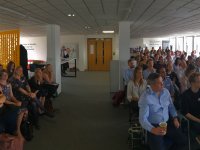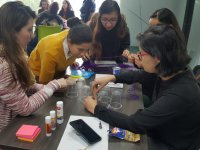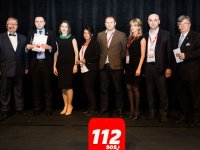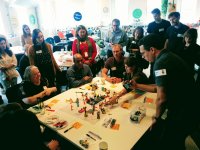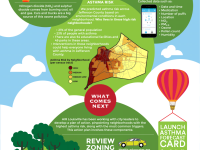The Better Government Movement (BGM), housed on Innovation.gov, builds a 21st century, delivery-driven government. BGM creates an inclusive space where public servants can grow their creative capacity and learn new tools, approaches, and mindsets to jumpstart innovation. This is in service of solving government-wide problems and affecting positive change within agencies and government writ large.
Innovation Tag: Innovation Labs and Units
CivTech is the Scottish Government’s challenge programme for innovation. The programme pioneers a smarter, faster approach to public procurement to harness entrepreneurial tech innovation and citizen engagement, improving public service delivery, creating economic development opportunities and fostering an entrepreneurial mindset within government.
This online course seeks to foster an innovation ecosystem in Bogota’s public offices, offering Bogota’s public officials the tools to gain capacities for public innovation.
Through practical exercises that are related to drawing and mapping, among others, public officials gain insight on ways to approach the users of public services.
This project presents the new approach in service delivery, through which we enabled deaf and hard of hearing persons to have an access to the most essential services, such as emergency call and civil registry services. Tireless engagement of deaf community in service design resulted in elaboration of user centered and People with Disabilities-tailored services, enabling beneficiaries to contact emergency services using a text-based or a video calling system and squire necessary civil documents…
The Namibia Institute of Pathology Limited (NIP) is the largest diagnostic pathology service provider in Namibia that operates 40 laboratories and 5 patient centers located in 14 regions across the country. The health facilities in the country are very far apart. NIP disseminates laboratory results via SMS printers deployed to 234 remote clinics using GSM cellular network.
A collaboration between government and community, Systemic Design eXchange (SDX) is an Edmonton-based community of practice for people interested in learning about systemic design as a methodology for addressing complex, real world issues. Together, we explore systems thinking, design thinking, and change lab approaches. With a bias towards learning by doing, SDX aims to be a watering hole where multiple sectors can come together, learn together, and act together.
The city of Louisville has one of the highest asthma rates in the U.S. AIR Louisville was a community program that used smart connected inhalers to help improve the asthma problem in Louisville. AIR Louisville enrolled 1,147 citizens of Louisville to improve asthma for everyone. Citizens benefited by receiving personalized care. Louisville Metro benefited from crowdsourced, hyperlocal data of air quality challenges our residents face.
The Asker Welfare Lab is a lab guided by the principle: "No decision about me, shall be taken without me."
Asker Welfare Lab is a concept for service delivery, solely centered on the citizen, in which all relevant municipal services, together with external partners of collaboration, invest together, aiming to raise the living standards, thereby bettering the quality of life of each individual and family in the program. All the services do still have one common factor - the citizen. Their…
Insights.US is a tool that helps governments and cities obtain insights directly from their stakeholders, and update participants on their personal impact on the final decisions. This method makes the public be more engaged in the outcome of public governance.
The Poverty Stoplight (PS) seeks to activate the potential of families to eliminate multidimensional poverty beyond traditional income measures through a self-evaluation tool. PS is used by communities, businesses and governments to support families in assessing their poverty levels and implementing practical solutions, empowering the poor to be architects and protagonists in the process of eliminating poverty.

